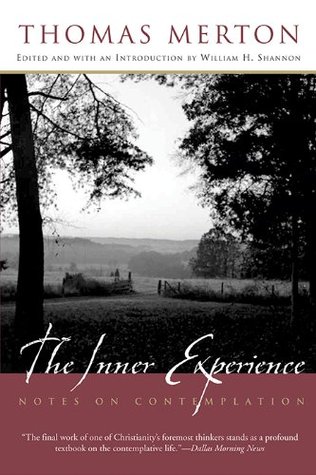More on this book
Kindle Notes & Highlights
One of the strange laws of the contemplative life is that in it you do not sit down and solve problems: you bear with them until they somehow solve themselves.
Do not watch for the results, for they will already have been produced long before you will be capable of seeing them. And pray for me, because from now on we are, in some strange way, good friends.
Zen, it sees things “without affirmation or denial,” that is to say, from a higher vantage point which is intuitive and concrete and which has no need to manipulate or distort reality by means of slanted concepts and judgments.
In such a condition, man’s mind is enslaved by an inexorable concern with all that is exterior, transient, illusory, and trivial. And carried away by his pursuit of alien shadows and forms, he can no longer see his own true inner “face,” or recognize his identity in the spirit and in God, for that identity is secret, invisible, and incommunicable.
“Secular” society is by its nature committed to what Pascal calls “diversion,” that is, to movement which has, before everything else, the anesthetic function of quieting our anguish.
It is a flight from life and from experience—an attempt to put a veil of objects between the mind and its experience of itself. It is therefore a matter of great courage and spiritual energy to turn away from diversion and prepare to meet, face-to-face, that immediate experience of life which is intolerable to the exterior man. This is only possible when, by a gift of God (St. Thomas would say it was the Gift of Fear, or sacred awe) we are able to see our inner selves not as a vacuum but as an infinite depth, not as emptiness but as fullness. This change of perspective is impossible as long as
...more
The hopeless “innocence” of modern man, who is so full of sin that he no longer experiences contrition and is consumed with guilt only for what is relatively inoffensive, is one of the most heartrending mysteries of our time.
Guilt is a sense of oppression from the outside, an anxiety one feels when he thinks he is going to be called to account for a misdeed. The anxiety of guilt is a sign of moral alienation. It becomes active within us when we interiorize a reproof suggested by the presence of an authority whose edicts we have violated.
The tragedy of modern man is that his creativity, his spirituality, and his contemplative independence are inexorably throttled by a superego that has sold itself without question or compromise to the devil of technology.
Without the silence and recollection of the interior life, man loses contact with his real sources of energy, clarity, and peace. When he tries to be his own god and insists on keeping his hands on everything, remembering everything and controlling everything, he drives himself to ruin.


